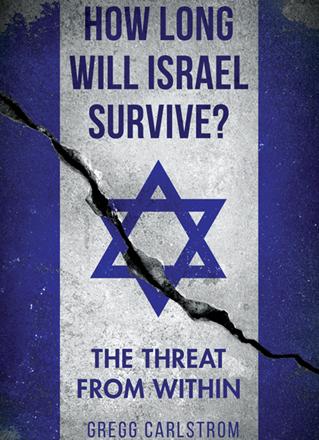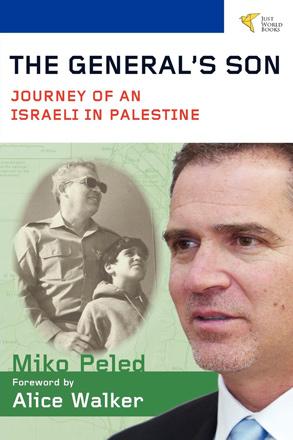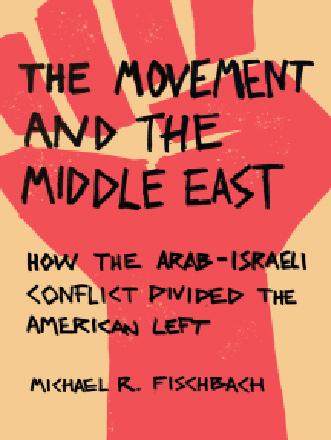You are here
‘An unhappy amalgamation of tribes’
By Sally Bland - Nov 06,2017 - Last updated at Nov 06,2017

How Long Will Israel Survive? The Threat from Within
Gregg Carlstrom
London: Hurst & Company, 2017
Pp. 260
Gregg Carlstrom has been stationed in the Middle East as a correspondent for The Economist and London’s The Times for a decade, the past few years in Israel. Writing in the style of investigative journalism, he begins each chapter with an anecdotal account of an event, then backtracks to fill in its background, significance and broader implications. If one follows events in the region, but not the internal Israeli scene in detail, “How Long Will Israel Survive?” is an excellent book for catching up.
The book is quite readable and refreshingly straightforward. Carlstrom, born in New York, identifies himself as left of centre and an agnostic, assimilated Jew; he does not claim to be unbiased. His main concern is whether Israel is democratic and follows liberal human values, but observing trends over the past few years under Netanyahu’s leadership in particular, he concludes: “Modern Israel presents a paradox. While the country has never been safer, more prosperous, and more accepted than it is today, these improved material circumstances have coincided with a deterioration not just in politics, but in the very fabric of its society.” (p. 3)
Covering events ranging from Israeli soldiers’ deliberate killings of Palestinians, settler violence and opposition to the army, and the 2014 war on Gaza, to Israeli elections, Knesset proceedings and shifting alliances among Israeli parties, Carlstrom identifies issues which are threatening Israel’s moral fibre and carving deep divisions in society. Among them are the rift between the military and the political leadership; corruption in high places that goes unpunished; increasingly overt racism; curtailment of civil society, opposing views and the press; the advance of the national-religious movement not only among settlers, but in the army and population at large; and a widening gap between Israel and more liberal diaspora Jews, mainly due to the continuation of the occupation, which seems to have become less of a concern in Israel. There is also the unresolved question of whether Israel can be both democratic and a mono-ethnic state.
Carlstrom points to many examples of obvious problems that go unaddressed and are intentionally delayed by Netanyahu’s government, such an entering into a viable peace process with the Palestinians, remedying poverty, and ending discrimination against Arab citizens of the state. More disturbing is that no one seems to care. In the absence of a real opposition and the once-vibrant peace movement, Israelis appear to vote based on fear and “tribal” identity. For example, the Likud won the last elections without even drafting an economic platform. Instead, Netanyahu ramped up scare tactics aimed at Iran and “the Arab vote”.
Recurring rounds of violence quickly drop out of the news and political discourse once they die down. While Israelis seem to have accepted that they will live in a permanent state of war, delaying existential issues has long-term consequences: “The never-ending conflict continues to poison the relationship between the Jewish majority and the Arab minority. Perhaps more significantly, it continues to empower an aggressive strain of Jewish nationalism. You could hear it on the streets, in the intolerance for dissent and the lack of empathy for suffering on the Palestinian side. And you see it in the polls, which reflect a steady erosion in support for talks [or any sort of settlement] with the Palestinians.” (p. 62)
While Carlstrom views the schism between Ashkenazi and Mizrahi Jews as having lessened, he points to discrimination against Arabs, Druze, Circassians and Ethiopian Jews, as well as the ever-widening gap between the ultra-Orthodox and secular, liberal Israelis. In his view, “Modern-day Israel often seems less like a state and more like an unhappy amalgamation of tribes.” (p. 99)
Carlstrom does not answer the question posed by the title of his book, but that does not matter; he gives the reader a lot of facts to ponder. Still, one recalls that in the mid-1980s, when the Jewish Underground was challenging the Israeli army and state, there was similar talk about Israel imploding from internal contradictions, but it did not happen. As the book shows, today’s divisions are much deeper, but the question seems more to be what kind of state and society Israel was, is and will be.
The book is prefaced by a quote from Ben-Gurion that Israel will prove itself “by its moral character and human values”. (p. xi) Carlstrom gives many examples that these have been deteriorating in recent years, but did Israel ever pass the test? While acknowledging the Nakba and many injustices perpetrated against the Palestinians since, and that many of Israel’s problems are an outgrowth of Zionism, he does not connect the dots. When he writes that “living illegally on occupied land… is an incubator for extreme views” (p. 234), he is referring to settlements in the West Bank considered illegal by Israel, not that all settlements there are illegal according to international law.
The real issue is structural: Israel’s colonial nature. A state founded on the destruction of another society can hardly uphold a superior moral character and values.
Related Articles
Decolonising Israel, Liberating Palestine: Zionism, Settler Colonialism, and the Case for One Democratic StateJeff HalperLondon: Pluto Press
The General’s Son: Journey of an Israeli in PalestineMiko PeledUS: Just World Books, 2012Pp.
This is a companion piece to Michael Fischbach’s earlier book, “Black Power and Palestine” (2019), covering roughly the same time period, the 1960s and 1970s, but with a different focus. While the subject matter of the earlier book is obvious from the title, the movement analysed in this new book is the broad array of (mainly white) organisations and individuals that united around opposition to the US war in Vietnam and the struggle for radical change in America

















